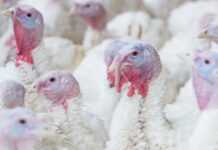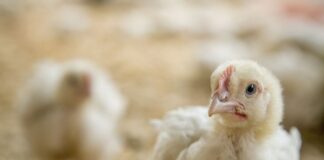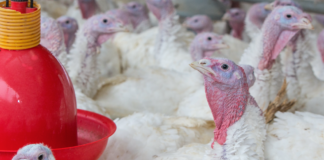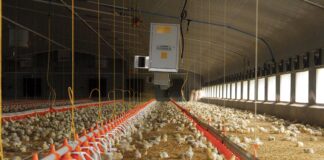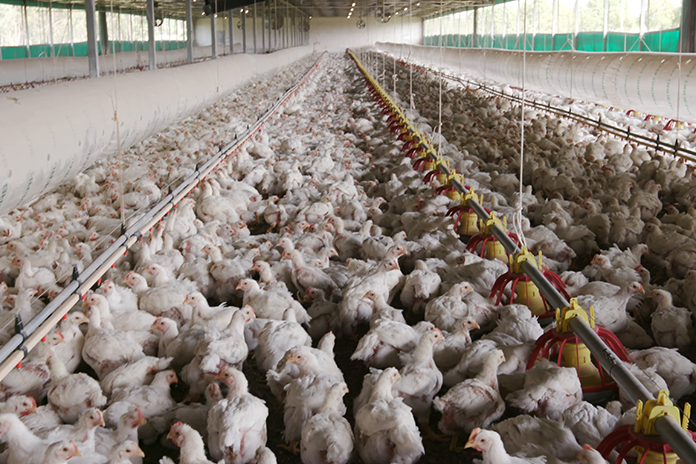
USPOULTRY and the USPOULTRY Foundation announce the completion of a funded research project at North Carolina State University in Raleigh, N.C., in which researchers found that an antibody vaccine in broiler breeders failed to prevent kinky back in broilers.
The research is part of the Association’s comprehensive research program encompassing all phases of poultry and egg production and processing.
Project #688: Efficacy of Breeder Hen Vaccination for Protecting Broilers from Enterococcal Spondylitis Caused by Enterococcus cecorum
Luke Borst, Ph.D, North Carolina State University, College of Veterinary Medicine, Raleigh, NC
Pathogenic strains of Enterococcus cecorum continue to cause significant problems for the U.S. broiler industry with some regions of the U.S. more affected than others. These strains cause outbreaks of symmetrical paralysis due to chronic infection of the free thoracic vertebra and subsequent compression of the spinal cord. This condition is commonly called kinky back. In previous work funded by the U.S. Poultry & Egg Association, Dr. Luke Borst and colleagues discovered that gut colonization and sepsis occur in the first three weeks of life in broilers. Since maternal antibodies are present during this period, we postulated that vaccination of breeders with a polyvalent killed vaccine would protect chicks from challenge.
The objectives of this study were to develop an inactivated Enterococcus cecorum vaccine and use it to elicit antibodies to pathogenic Enterococcus cecorum and to determine the effect of passive immunity induced by this vaccine on challenge with various strains of pathogenic E. cecorum.
Pathogenic E. cecorum strains recovered from different regions of the U.S. exhibit antigenic variability. Dr. Luke Borst and colleagues determined that an adjuvanted polyvalent vaccine composed of two pathogenic isolates (designated SA3 and SA7) elicited antibodies in hens that serologically reacted with whole cell extracts of strains that represent all known genotypes of pathogenic E. cecorum circulating in the U.S. Vaccination of broiler breeder hens on a routine schedule did not have any adverse effects on the hens. Vaccinated hens developed E. cecorum specific antibodies, while no E. cecorum specific antibodies were detected in serum from control hens. Compared to serum from control hens, serum from vaccinated hens did not increase the killing of pathogenic E. cecorum strains. This suggests that pathogenic strains of E. cecorum may possess virulence mechanisms that specifically deter antibody mediated killing.
To assess the functionality of elicited antibodies in vivo, chicken embryos from hens that received either the vaccine or from control hens were challenged with a pathogenic E. cecorum strain in a chick embryo lethality assay. No significant difference in survival was observed in embryos from hens in vaccine or control groups. Predictably, chicks from vaccinated hens also failed to resist challenge during experimental infection.
In this work Dr. Luke Borst and colleagues discovered that pathogenic E. cecorum appears to be able to evade antibody mediated killing. Additional work is needed to understand this mechanism of virulence in pathogenic E. cecorum. Control of pathogenic E. cecorumremains problematic and a safe and effective vaccine remains highly desirable. Unfortunately, it appears that the killed vaccine Dr. Luke Borst and colleagues developed, while safe, does not produce effective immunity and is therefore unlikely to decrease the economic and animal health impact of this disease.




